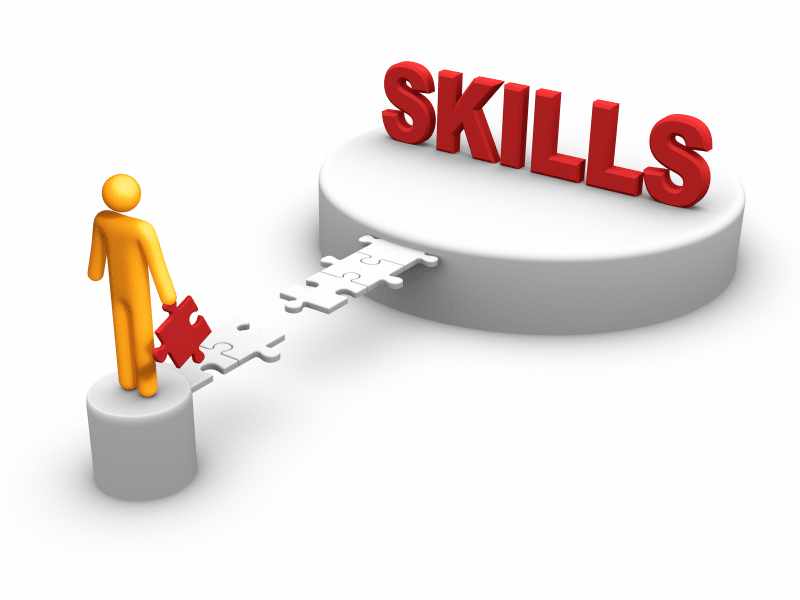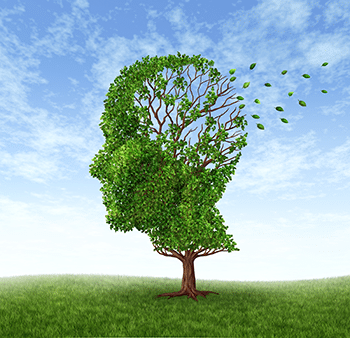Warning: Undefined array key 1 in /var/www/wp-content/plugins/monarch/monarch.php on line 4359
Being over 50 means never taking a memory lapse at face value. Did you forget to call your boss back? Fail to take your medication? Overlook a social obligation? Such incidents sometimes send us into a frantic search for ways to improve memory.
The subtext, of course, is that we’re questioning whether our forgetfulness is a sign of approaching dementia. For most of us, most of the time, the answer is no. Average garden-variety forgetfulness is usually the culprit, and that particular noxious weed does tend to flourish in the over-50 garden.
Being forgetful can significantly reduce our quality of life. Wasting time searching for things that should be easy to find, rescheduling missed appointments, paying late charges for unpaid bills – these all take a toll on our lives and also result in immense frustration. Not to mention the embarrassment we feel when we are caught publicly in a lapse of memory.
When these incidents result in a search for answers, we look for brain training games. We research dietary supplements. All the while the answers are right in front of our faces. We know exactly how to improve memory, but the answer is not a suite of games or a pill or a single easy lifestyle change. Instead, it’s a combination of strategies, none particularly onerous, but all requiring the overcoming of inertia.
How to Improve Your Memory
Three steps are especially important. Let’s call them the Big Three.
Learn New Skills
The first step is simply to learn something new. It doesn’t help our brain much to practice skills we already have. We’re just cutting the grooves deeper, so to speak, not creating new pathways. Pick something new to learn. It has to be something that requires real effort, so choose something that you want to learn. Otherwise, you won’t stick with it.
Card games, crossword puzzles and the like are okay, but tackling something substantial is better. Learn a little conversational Spanish, or tinker with a photo editing program. Figure out how to do simple maintenance on your car or on your computer. Take up knitting or watercolor. You’ll practically be able to feel your neurons firing.
Increase your physical exercise
Two kinds of exercise are especially good for cognition. One is aerobic exercise, also known as cardio. Docs say that what’s good for the heart is good for the brain. The second kind is any exercise regimen that requires thinking about the movement.
You can check off cardio with any activity that gets your heart rate up. Running, walking, biking or swimming are the standards, but you can sit in a chair and still move vigorously enough to get some aerobic benefit. You can get the second type of exercise with any activity that requires coordination and patterning. Take up a new sport that requires hand-eye coordination (disc golf, pickleball) or that requires a series of movements (bowling, line dancing). You’ll have a highly oxygenated brain that is also forming new connections.
Get a lot of good sleep
That doesn’t sound hard because everyone likes to sleep. But very few people get the amount and quality of sleep that they need – 7.5 to 9 hours on average. Scientists now think that in order for the brain to process information that it acquired during the day, deep sleep needs to occur. Scientists call this process memory consolidation. Inadequate sleep may mean that some information is never processed and is therefore lost.
So many aspects of the modern age interfere with sleep. Many of us live in places that never get really dark or really quiet. Some of us don’t get to sleep on time because of the unabated stream of information and entertainment that pours into our households. And those screens that we use to access information by themselves disturb sleep. If we are serious about getting the quality of sleep that can improve memory, we need to go back to sleeping like our grandparents probably did – following the cycle of daylight and dark, with no lights, screens or ruckus to disturb us.
These are the Big Three factors in memory improvement. Other things can help, too. A Mediterranean-style diet with ample Omega 3s is one. An active social life is another. But nothing will have as powerful an impact as the combination of the Big Three.
What About Memory Improvement Games?
If you are still hopeful of finding that magic pill or single step for improving memory, you may have latched onto the idea of brain games or brain training. For a brief period of time, we thought that such programs might hold the key. Now, most experts believe that any benefits are likely to be short-term and of limited help. Practicing a memory improvement game on the computer, for example, may help you do better in that particular game, but it’s unlikely to help you remember the ten items you need from the supermarket.
Learn to Cope With Occasional Forgetfulness
So we’re back to our three lifestyle changes, but in addition, we can also learn strategies that will help us cope with occasional forgetfulness. When we really want to remember something, we need to stop multitasking and really attend to that thing. It helps some people to say it aloud. We can also use physical props to help us remember.
Let’s say that your spouse says the doctor called and wants you to come in on Tuesday at 2:00 p.m. You should stop what you are doing and repeat the information aloud. Then try to create a mnemonic device that will anchor the information more firmly in your memory. If you tend to learn through words, you might make a rhyming statement: “Tuesday at two the doc is due.” If you are more of a visual learner, you can create an image collage to help you remember. You might picture yourself in a hospital gown holding up two fingers with a calendar reading “Tuesday” behind your head. Then you’ll write the appointment down in your planner or enter it in your phone – that’s the physical reminder.
Let’s practice the ideas we discussed earlier. The Big Three: Learn something new, up your exercise and get good sleep. Rhyming mnemonic: “Boost your memory a heap; Learn something new, work out and sleep.” Image mnemonic: Picture yourself asleep on an exercise bike with a book in your hand. Now you’ll remember the Big Three!
I thought about closing with a joke, but when you’re over 50, jokes about losing your memory really aren’t funny. So I’ll just say, God bless. Now go make some memories
Sources
“Exercise, Memory and the Brain.” Psychology Today. https://www.psychologytoday.com/blog/what-body-knows/201511/exercise-movement-and-the-brain
“What is Memory Consolidation?” VeryWell. https://www.verywell.com/what-is-memory-consolidation-2795355
“Tips for a Better Memory.” WebMD. https://www.webmd.com/balance/features/tips-for-better-memory
“How to Improve Your Memory in Ten Effective Steps.” Prevention. https://www.prevention.com/health/health-concerns/ways-improve-your-memory
“How to Improve Your Memory.” HelpGuide. https://www.helpguide.org/articles/healthy-living/how-to-improve-your-memory.htm
“4 Tricks to Rev Up Your Memory.” Harvard Health Publishing. https://www.health.harvard.edu/aging/4-tricks-to-rev-up-your-memory
Biography
Susan Adcox is a web journalist with a special interest in generational issues, including grandparenting and healthy aging. She is the author of Stories From My Grandparent: A Heirloom Journal for Your Grandchild.
I’m a self-professed madman, adventurer, photographer, certified High-Performance Coach, martial artist, and licensed physical trainer specializing in senior fitness. My passion is to continue growing and developing into my own unique, gifted, and joyful authenticity, while committing myself towards doing my own special part to help change the world. My mission is to help others find their own direction and purpose in life, by means of mentoring, teaching, and empowering.











